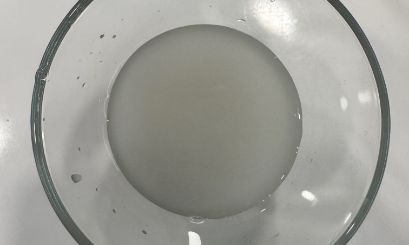Cloudy Tap Water: What Should You Do?
Dealing with cloudy tap water can be concerning, especially when it comes to its potability. It's important to address the issue and understand its causes before using the water.
Water Turbidity: Explained

Cloudy Well Water: Identifying the Causes
The Impact of Cloudy Water
FAQ about Cloudy Water Problems
Cloudy tap water can have several causes. Commonly, it’s due to tiny particles like sediment or minerals that get stirred up due to work on water lines or shifts in your local water supply system. Things like heavy rain can also stir up particles into water sources, making your tap water look cloudy. Changes in water pressure might loosen deposits that have built up in pipes, too. While cloudy water might seem concerning, it isn’t often a sign of a health risk.
Drinking cloudy water usually isn’t harmful. The risk depends on what exactly is floating in the water. If it contains harmful stuff like bacteria, viruses, or harmful chemicals, then it could be a health hazard. But mostly, cloudy water is more of an eyesore than a health concern. If the cloudiness came on suddenly or is pretty heavy, getting your water tested is a smart move to ensure it’s safe.
If you notice your water’s gone cloudy, check if it’s just one faucet or all over your house. If it’s just one spot, your plumbing might be the issue, and some parts might need cleaning or replacing. If the whole house has cloudy water, get in touch with your local water company. It might indicate a bigger issue in the water system. Meanwhile, you might want to stick to bottled water for drinking and cooking.
To clear up cloudy water, just let it sit in a clean container so the particles can settle down. For a faster fix, a water filter at home can help. These filters can catch those tiny particles that make your water look cloudy. If the problem keeps up, consider getting a whole-house water filtration or softening system installed.
The time it takes to fix cloudy water can vary based on what’s causing it. If it’s due to temporary work on the water lines or seasonal factors, it might clear up in a few hours or days. But if it’s related to issues in your home plumbing, like old or damaged pipes, fixing it could take longer and might require a plumber. Installing a home water filtration system can also be a quick solution for ongoing issues, depending on what system you go for.
When it comes to using cloudy water around the house, it’s best to be cautious, especially for cooking or preparing food. Cloudy water can leave behind residues on your dishes or laundry, and its effects on cooking or cleaning quality are unpredictable. If you need to use tap water for these tasks, boiling it first is a good idea. For laundry, to avoid possible staining, filtered or bottled water might be a safer bet.
If your water stays cloudy despite your efforts, or if it’s also got weird smells, tastes, or leaves behind residue, it’s time to call in a professional. A plumber can check your home’s plumbing to pinpoint any issues. And if you’re worried about what’s in your water, a water testing lab can analyze it for any harmful contaminants or bacteria.
At Groupe Ilqueau, we tackle cloudy water issues head-on. We start with a thorough water test to figure out why your water’s cloudy. Depending on what we find, we might suggest setting up a filtration or water softening system to filter out those pesky particles. We also offer plumbing services to fix any underlying issues in your system. Our aim is to provide custom solutions that ensure you have clear, high-quality water in your home.